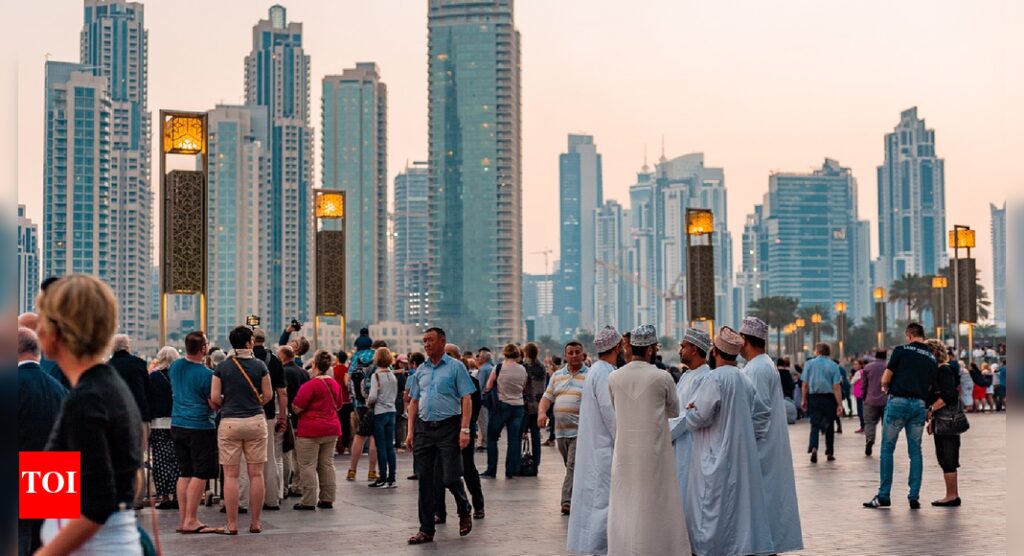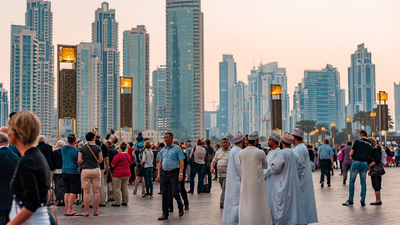Living in UAE? Here are major rules, updates taking effect this July : Travel, work hours, health laws & More | World News

The United Arab Emirates is ushering in a series of key regulatory and lifestyle changes starting July 2025, affecting residents, businesses, and government employees across various emirates. From new visa agreements and Emiratisation deadlines to remote work schedules and health regulations, the updates are aimed at improving governance, wellbeing, and workplace efficiency while ensuring public safety during the hot summer months. Here’s a detailed breakdown of all the developments taking effect this July:
1. Visa-Free Travel for UAE Residents to Armenia
Starting July 1, Armenia will offer visa-free entry to UAE residents, expanding its existing travel agreement that previously applied only to UAE nationals.
- To qualify, travelers must hold a valid UAE residency visa with at least six months’ validity from the date of entry.
- The new policy applies to all GCC passport holders and anyone with a valid residency permit from the six Gulf countries.
- Visitors can stay for up to 90 days within a 180-day period for tourism, business, or leisure without needing a visa.
Previously, UAE residents were only eligible for visas on arrival, making this change a major convenience for travel planning.
2. Emiratisation Deadline Approaches for Private Sector Companies
The Ministry of Human Resources and Emiratisation (MoHRE) has issued a final reminder to companies in the private sector that employ 50 or more workers: they must comply with the mid-year Emiratisation targets by Monday, June 30, 2025.
- Companies are required to ensure that at least 1% of their skilled workforce consists of Emirati nationals.
- This is part of the UAE’s long-term plan to increase Emirati presence in the private sector.
- MoHRE will also audit companies to check for:
- Proper registration of Emirati employees with the social security fund.
- Timely payment of mandatory contributions.
Companies failing to meet the quota will incur financial penalties of Dh9,000 per month for each Emirati not hired in accordance with the prescribed target. These penalties will be calculated retroactively and enforced as part of the UAE’s broader compliance framework.
3. New Flexible and Remote Work Policies in Dubai and Ajman
Dubai and Ajman are rolling out updated work schedules to help public sector employees cope with the intense summer heat while improving work-life balance.
Dubai: ‘Our Flexible Summer’ Initiative
Effective July 1 to September 12, 2025, government employees will follow a reduced summer work schedule divided into two options:
- Group 1: Works 8 hours from Monday to Thursday, with Fridays off.
- Group 2: Works 7 hours Monday to Thursday and 4.5 hours on Fridays.
This follows last year’s similar initiative applied to 21 government departments from August 12 to September 30.
Ajman: Remote Work Fridays
Ajman’s government employees will adopt a new summer work model from July 1 to August 22, 2025:
- Employees will work remotely every Friday.
- Weekday office hours will be reduced by one hour, operating from 7:30am to 2:30pm, Monday to Thursday.
- Departments are instructed to maintain uninterrupted essential public services through flexible internal arrangements.
4. New Health & Public Safety Regulations
New Health Law on Infectious Diseases in Dubai
A new health law will be enacted in late July to strengthen public health protocols and manage the spread of infectious diseases. Key highlights of the law:
- Individuals infected or suspected of having an infectious disease must avoid contact that could spread the illness.
- They must not travel or move, except to a healthcare facility, and only with prior Dubai Health Authority (DHA) approval.
- Concealing or spreading infections, whether intentionally or unintentionally, is strictly prohibited.
This legislation is aimed at minimizing public health risks and reinforcing the UAE’s preparedness against communicable diseases.
Legalisation of Tobacco-Free Nicotine Pouches
Beginning July 29, a new UAE law will permit the sale of tobacco-free nicotine pouches, a move aligned with public health efforts to help individuals quit smoking.
- These smokeless pouches contain nicotine but no tobacco.
- They work by releasing dopamine, the brain’s “feel-good” hormone, which helps reduce cravings and withdrawal symptoms.
- Officials stress that nicotine remains an addictive substance, and the regulation is intended to support cessation, not encourage use.
5. Summer Holidays and Childcare Alternatives
Most UAE schools will close for summer holidays starting in early July, with the break lasting until the end of August.
- Schools typically follow calendars set by the Ministry of Education, KHDA (Dubai), or ADEK (Abu Dhabi).
- With the long break, working parents often turn to summer camps to keep their children engaged and active.
- Many families who stay back due to work or to avoid peak travel costs rely on these camps for structured activities.
- Others take the opportunity to travel abroad, seeking cooler climates or visiting family during the extended vacation.
6. Midday Work Ban Continues Across the UAE
As part of its annual summer safety initiative, the UAE has enforced a midday work ban effective from June 15 to September 15, 2025.
- The rule prohibits outdoor work under direct sunlight between 12:30pm and 3:00pm.
- The aim is to protect laborers from heat-related illnesses during peak summer temperatures.
- Penalties for non-compliance:
- Dh5,000 per worker found violating the rule.
- Up to Dh50,000 for multiple violations within a single company.
The midday break is a long-standing policy to safeguard workers’ health and safety in harsh weather conditions.The UAE’s regulatory updates for July 2025 reflect a broader effort to improve quality of life, encourage local workforce participation, ensure health and safety during summer, and simplify travel and lifestyle for residents. Whether you’re traveling, working, or planning for your family, staying informed on these changes will help you better navigate the months ahead.







